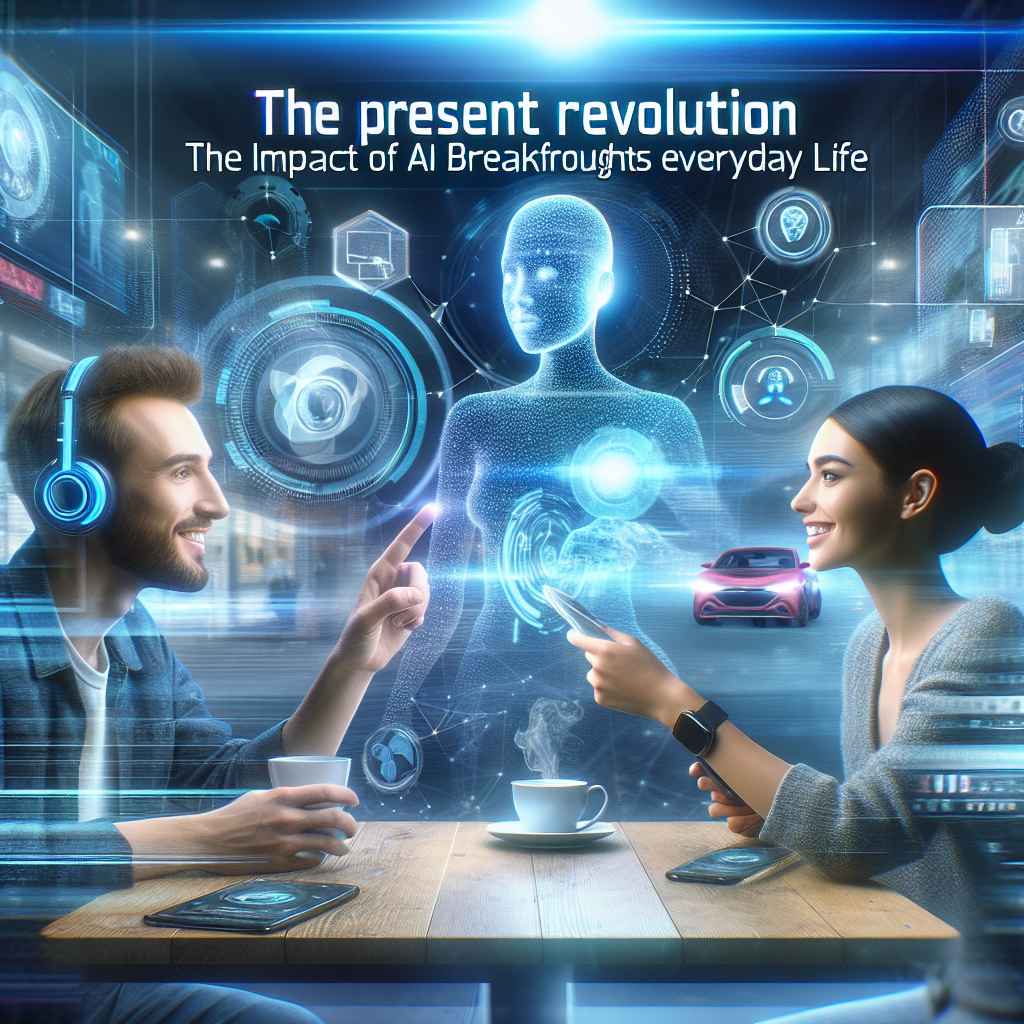Artificial Intelligence (AI) has transcended its origins in science fiction to become a vital element of our daily lives. Its revolutionary capabilities are visible in enhancing convenience, efficiency, and personalization across various areas. This article examines how recent advancements in AI are influencing our routines, revolutionizing industries, and shaping societal norms.
AI in Daily Activities
AI has significantly simplified our everyday tasks through virtual assistants like Siri and Alexa, as well as complex recommendation systems on platforms like Netflix and Amazon. These digital aides not only handle scheduling and answer questions but also adapt to user preferences, creating a more seamless interaction. The implementation of natural language processing (NLP) enables these technologies to comprehend and engage in human language, making them more accessible than ever before.
Smart Homes and IoT Connectivity
The influence of AI is particularly noticeable in smart home devices. Gadgets powered by AI—such as smart thermostats, security cameras, and refrigerators—can learn from user behavior and adapt their functions accordingly. For instance, a smart thermostat may evaluate your daily schedule and automatically modify temperatures for optimal comfort and energy savings.
The integration with the Internet of Things (IoT) enhances these features, allowing devices to communicate seamlessly. Picture a scenario where your smart coffee maker begins brewing your favorite morning coffee as your alarm rings, or your home security system notifies you of any unusual activity while you’re away. This interconnectedness sets a new benchmark for convenience in our living spaces.
Workplace Transformations
AI is also transforming workplaces across diverse sectors. By automating routine tasks and providing insightful data analysis, AI enables employees to concentrate on strategic initiatives. For example, chatbots and virtual customer service representatives manage basic inquiries, freeing human agents to address more complex concerns.
AI-powered tools allow companies to sift through vast data sets to extract actionable insights. Machine learning algorithms identify trends and patterns, empowering organizations to make informed choices about marketing strategies, inventory management, and employee productivity. Consequently, businesses are increasingly adjusting their operations to leverage AI’s potential, fostering a more innovative work culture.
Customized Learning and Education
In the education sector, AI is making significant advancements. Adaptive learning technologies customize educational experiences to meet individual student needs. Platforms like Coursera and Khan Academy utilize AI algorithms to monitor user progress and modify content accordingly, ensuring learners face appropriate challenges and receive adequate support.
Moreover, AI assists educators in analyzing student performance data, helping to identify at-risk students and ultimately enhance educational outcomes. As personalized learning gains traction, the traditional classroom model is evolving to encourage collaboration and engagement among students.
Innovations in Healthcare
The role of AI in healthcare is substantial, with applications spanning from diagnostics to patient care. Machine learning models excel at analyzing medical images, often surpassing human specialists in identifying conditions like cancer or fractures. Additionally, AI algorithms expedite drug discovery by predicting interactions between different compounds and biological systems, greatly accelerating the research process.
AI-driven predictive analytics improve patient management, enabling healthcare providers to anticipate complications based on historical data. Wearable devices equipped with AI capabilities track patients’ health in real time, alerting caregivers or doctors if anomalies arise. This proactive approach is leading to a more responsive healthcare system.
Ethical Considerations and Future Challenges
While the advantages of AI integration into daily life are evident, it is crucial to address ethical concerns and potential challenges. Issues such as data privacy, algorithmic bias, and job security remain vital topics as society navigates this technological evolution. As AI systems become more autonomous, establishing regulations and ethical guidelines will be essential to ensure a future that benefits everyone.
Conclusion
The transformative capabilities of AI are evident in numerous aspects of everyday life. From enhancing home automation to reshaping workplace dynamics and improving healthcare, AI breakthroughs are transforming our world. As we progress and integrate these technologies, it is essential to approach this evolution thoughtfully and ethically, ensuring the benefits of AI are accessible to all. The future is indeed upon us, and with mindful stewardship, its possibilities are boundless.

